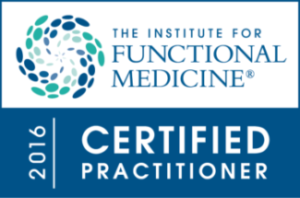Are you wanting to regain your health? Or are you wanting to prevent disease? If so, are you considering going to visit your primary care practitioner (PCP) for advice on how to accomplish this?
Let me save you a trip! You see, the usual conventional primary care practitioner (PCP) is not focused on helping you prevent disease or helping you to regain your health, except for let’s say advising you to eat right and exercising more. 
That’s because our conventional healthcare system is not set-up to actually heal you, but instead it is set-up only to treat the complaint you present with at the time. Don’t present too many complaints at one time to your PCP, because they only have about 10-minutes to spend with you because of the third-party payor system that controls it (private health insurance and Medicare). Your treatment is likely going to be a quick fix——a prescription medication, because it doesn’t take very long to write a prescription. To truly heal you and get to the root cause of your complaint, might take hours, days, months, or years. Your PCP doesn’t have that kind of time, nor will the third-party payor system pay for the practitioner’s time to do this.
While on the other hand, if you see a functional medicine practitioner, this is exactly the type of healthcare practitioner who wants to help you get to the bottom of your health concerns and heal you as much as possible, not with a band-aid (aka, prescription medications), but with a holistic approach (looking at the whole body), including your emotional and spiritual well-being. You can count on a functional medicine practitioner to spend no less than one to two hours with you at an initial visit.
Functional Medicine is NOT “Voo-Doo” Medicine!
Functional medicine is NOT “Voo-Doo” medicine, like some want to make you believe it is. Actually, it is “conventional” medicine that could be considered more like “Voo-Doo” medicine, since it uses “synthetic” pills and potions to treat you with (and sometimes surgical means). These “synthetic” treatments often have significant side effects, since the body is unable to recognize the artificial manipulation of the compound, resulting in the unnatural effects to the body.
CLICK TO START TODAY: PURCHASE ONE OF OUR HEALING & WELLNESS PLANS & BECOME UNSTOPPABLE
What is Functional Medicine?
Functional medicine is an evidenced-based clinical approach to healing and preventing disease that addresses environmental influences on health and illness, and uses “natural” remedies to get to the root cause of the issue. The fundamental concept is that if you “give the body what it needs, and take away what it doesn’t need, the body will heal itself.” If the body is deficient in hormones or nutrients that is causing the person’s symptoms, then that is what will be given. There is no human body that is deficient in let’s say, the prescription drug, “Metformin,” or “Lisinopril.” If we give these prescription drugs to the body, we might achieve the desired result in the short-term, but not without manipulating the system to respond unnaturally, and not without truly getting to the real cause of the problem. It’s a band-aid, that will eventually wear off, but not without also potentially robbing you of nutrients, or stressing your system in some way.
Conventional Medicine Does Have It’s Place!
This is not to say that “conventional” medicine doesn’t have a place in our life. It just means that conventional medicine is not the best type of medicine for reversing chronic disease or preventing it. In the “acute” situation, it most definitely may be your best option, e.g. in an emergency situation. But for reversing or preventing chronic health conditions, conventional medicine is only a band-aid.
Functional Medicine Improves Quality of Life!
Functional medicine seeks to improve the quality of life for people. It is an evolution in the practice of medicine that better addresses the healthcare needs of the 21st century. By shifting the traditional disease-centered focus of medical practice to a more patient-centered approach, functional medicine addresses the whole person, not just an isolated set of symptoms. Functional medicine practitioners, spend time with their patients, listening to their histories and looking at the interactions among genetic, environmental, and lifestyle factors that can influence long-term health and complex chronic disease. In this way, functional medicine supports the unique expression of health and vitality for each individual.
In functional medicine, we use the entire tree (trunk, branches, leaves, and roots) as a model to depict the difference from the conventional medicine model, where only the branch is viewed.
CLICK TO START TODAY: PURCHASE ONE OF OUR HEALING & WELLNESS PLANS & BECOME UNSTOPPABLE
The Leaves of a Tree Equate to Your Symptoms
For example, the leaves of a tree are visible and are an indication of the underlying health of that tree. Your symptoms are equivalent to the leaves of a tree. As a practitioner, I use your symptoms to guide me in better understanding what your imbalances might be, instead of only treating you with a medication, for example, for the symptoms (a band-aid). Of course, I will help treat your symptoms, but I go much deeper to find what is actually causing those symptoms.
The Trunk of the Tree Equates to Clinical Imbalances
As you know, the tree trunk branches off into the leaves. When our body has clinical imbalances, these imbalances reveal themselves through our symptoms. The trunk equates to these clinical imbalances. In functional medicine, imbalances are categorized by the following processes and/or body systems:
1) Assimilation:
How is the patient moving food, oxygen, and chemicals, and other substances between the body & the outside world? How is the patient assimilating their nutrients? In other words, are there imbalances in digestion, absorption, microbiota/gastrointestinal system and respiration processes? Potential imbalances can be caused by irritable bowel syndrome, bloating, small bowel bacterial overgrowth (SIBO), gastroesophageal reflux disease (GERD). How is the patient assimilating oxygen? Is the respiratory function operating optimally? What are they assimilating through the skin on a daily basis (toxic compounds absorbed from skin care products, etc.).
2) Defense & Repair (Immune & Inflammatory imbalances):
Inflammation is a primary component of this imbalance and key environmental factors, e.g. allergens, toxins, stress, trauma, infection, lowered oxygen, drugs, and alcohol, will be investigated. Potential problems in this imbalance include: food allergies, gluten enteropathy, chronic sinusitis, asthma, rosacea, psoriasis, yeast infections, mold, edema.
3) Energy:
Mitochondria are the powerhouses of the cells. We look at the imbalances caused by oxidative stress and their effect on mitochondria damage. Does the person have inadequate levels of antioxidants? What conditions might lead to energy dysregulation or a decreased amount of ATP (adenosine triphosphate, which transports energy in the cells for metabolism) or inadequate nutrition? An energy regulation imbalance can cause migraines, chronic fatigue disorders, fibromyalgia, pain, brain dysfunction, cognitive decline and dementia.
4) Biotransformation & Elimination:
What is the person’s total toxic load? We assess the organs responsible for elimination and clearance.
The person’s nutrition, and their genetic predisposition (ability or lack of ability to transform compounds and hormones) are investigated. Problems in this imbalance might be due to fibromyalgia, multiple chemical sensitivities, mercury toxicity, and mercury dental amalgams.
5) Transportation:
Are nutrients, hormones, fluid and other molecules transported through the circulatory (cardiovascular) and lymphatic systems effectively? Once absorbed, nutrients must be distributed to the tissues for metabolism to occur. Defects in transport proteins, called lipoproteins, or specific genetic uniqueness can result in altered transport and distribution effects that alter a person’s physiological function.
6) Communication:
Our cells communicate with each other both outside and inside the cell via endocrine (hormone) signals, neurotransmitters, and immune messengers. Potential problems in this imbalance can include insulin resistance, polycystic ovarian syndrome, premenstrual syndrome, fibroid or uterine imbalance, and depression with anxiety.
7) Structural Integrity:
The musculoskeletal system and the whole body depends on structural integrity (replication, repair and maintenance). The person’s body composition, the integrity of the gastrointestinal system and all the cellular structures define self. Potential problems in this area might be osteoarthritis, rheumatoid arthritis, and osteopenia/osteoporosis.
Imbalances in these seven areas are the precursors to the signs and symptoms by which we detect and/or diagnose disease. The most important thing we do in functional medicine is to restore balance in the patient’s fundamental physiological processes and their environment.
The Roots of a Tree Equates to the Environment & Genetic Disposition
The Environment:
Environmental inputs along with our genetic disposition are similar to the roots of a tree in that they give rise to clinical imbalances, that in turn, become symptoms.
There are five causes of illness due to our environment:
1)Toxins (biologic, elemental, synthetic)
2) Allergens (food, mold, dust, animal products, pollens, chemicals)
3) Microbes (bacteria, yeast, parasites, worms, prions, etc.)
4) Stress (physical or psychological)
5) Poor diet (standard American diet, or SAD). (Food is information—we either get good or bad information from what we eat).
Our body is resilient, so the negative effects of these exposures may not be seen immediately, but they can accumulate over time and eventually lead to a chronic illness. Thus, in the functional medicine world, diseases do not exist. Instead, focus is placed on the core clinical imbalances, and their patterns and connections to find the causes that lead to the clinical imbalances, and focusing on learning how to restore balance within the cells.
In this model, it is possible to see that one disease or condition may have multiple causes or imbalances, just as one fundamental imbalance may be at the root of many seemingly disparate conditions. For example, “obesity” is one “condition” that has many “imbalances” (e.g. inflammation, hormonal imbalance, mood dysregulation, genetics/epigenetics and diet/exercise). Whereas “inflammation” is one “imbalance” that can be the cause of many “conditions” (heart disease, depression, arthritis, cancer, diabetes).
Our Genetic Disposition:
Many believe that their genes are their destiny—just because their parents or siblings had a certain illness, that they will, as well. But this is far from true. We now know that it is our environment that influences our genetic expression. This is called epigenetics.
What solves the problem of genetics is creating a lifestyle that positively influences our genetic expression. Our environment influences how our genes express themselves. In doing so, your body will express a state of health or a state of illness. These environmental factors can be in our control, and thus our genes do not have to be our destiny. Seventy-five percent of our genes are controlled by these environmental influences, and thus we have the ability to control our health.
In Summary:
To better understand the functional medicine approach, you must understand that the body does not work in isolation, but instead, it operates like a series of gears. It works synergistically. Sadly, conventional medicine has done a great job of separating and specializing doctors. Specialists look at only one gear (one organ system), e.g. a cardiologist, and only through their lens. They don’t even think about how their treatment effects the other gears (organs) and body tissues. They just care about their speciality, and ignore the rest. This just doesn’t work. In functional medicine, we look at the whole picture, the whole body and identify where the problem is really coming from. In functional medicine we explore every aspect that could be influencing your health and empower you to take an active role in your healing or in your preventive health maintenance. We go “upstream” to find the root cause of your health concerns, rather than simply give you a medication to mask your symptoms, so that you can fully heal (not temporarily) and prevent chronic illness from the roots up.
I hope this approach resonates with you. There is nothing more I would love to do than to help you become wealthy, because true health is the real wealth!








